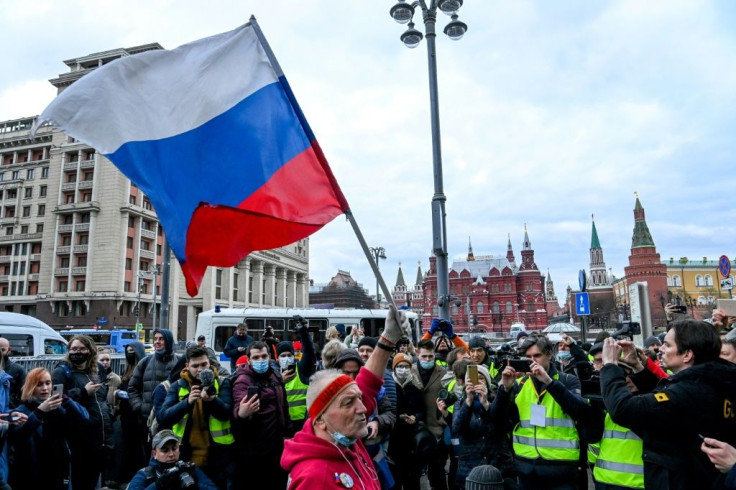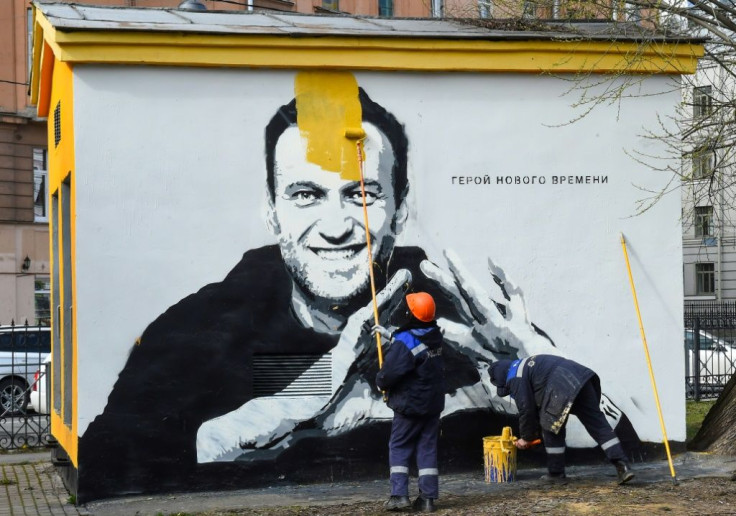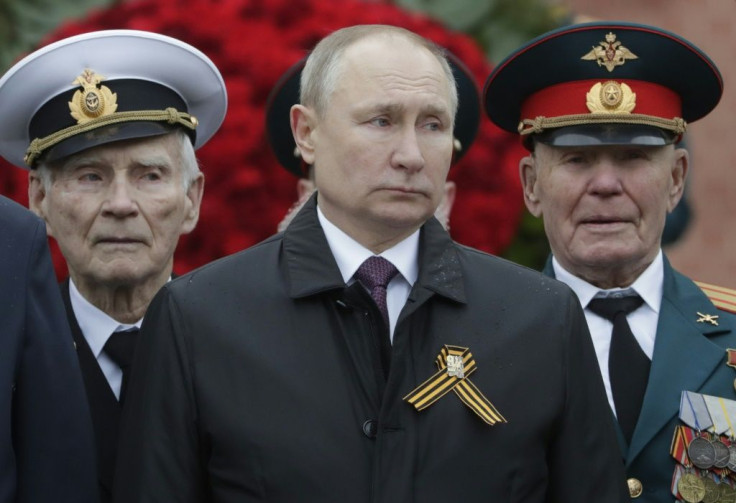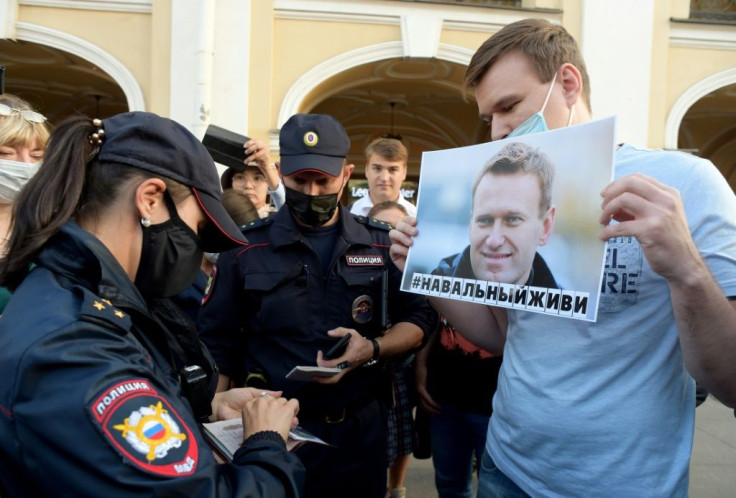Russia Seeks To Outlaw Navalny Movement
A Russian court is set to hear an "extremism" case against the political network of jailed Kremlin critic Alexei Navalny on Monday as Moscow seeks to outlaw the opposition to President Vladimir Putin.
The closed court hearing is part of a sweeping crackdown on Putin's most prominent critic and his supporters after Navalny barely survived a poisoning with the Novichok nerve agent last summer.
As part of the effort -- which comes a few months before parliamentary elections -- the lower house is set on Tuesday to begin debating a bill banning members of "extremist" organisations from being elected lawmakers.

Prosecutors in April requested that Navalny's regional network and his Anti-Corruption Foundation be designated "extremist" organisations, accusing them of plotting to stage a Western-backed uprising in Russia.
Such a court ruling would put Navalny and his supporters and financial backers on par with members of the Islamic State group and Al-Qaeda and threaten them with long prison sentences.
"The opposition will be crushed," Abbas Gallyamov, an independent political analyst and former Kremlin speechwriter, told AFP, warning that the official ban on dissent would eventually backfire.
"By destroying the opposition, they are destroying their own legitimacy," Gallyamov said, referring to Russian authorities.

Navalny emerged as a top leader of Russia's opposition movement a decade ago, leading huge anti-Kremlin rallies sparked by claims of electoral fraud in 2011.
Established in 2011, the Anti-Corruption Foundation has published numerous investigations into the lavish lifestyles of Russia's elite.
Navalny's probe into a Black Sea palace Russian tycoons allegedly built for Putin has racked up more than 116 million views on YouTube since its release in January. Putin denies the palace is his.

Even though Navalny was not allowed to run against Putin in a presidential election in 2018, authorities had for years tolerated his political movement, which relies on donations from supporters.
But analysts say the Kremlin is willing to take no chances ahead of parliamentary elections in September as public fatigue is growing with Putin's two-decade rule and the coronavirus pandemic exacerbates economic woes.

"Our country is sliding into darkness," Navalny said in a recent post on his Instagram account, which is being run by aides while he serves two-and-a-half years in a penal colony.
"But those who are pushing the country backwards are historically doomed."
Ahead of Monday's court hearing, Russia's financial monitoring service Rosfinmonitoring added Navalny's political network to its database of terrorist and extremist organisations.
Navalny's network had disbanded ahead of the listing to shield its members and supporters from possible prosecution.
Russian lawmakers also proposed legislation that would apply retroactively and ban Navalny's allies from running in parliamentary elections.
Parliament's lower house, the State Duma, said that the bill targets leaders, sponsors and rank-and-file members of "extremist" organisations.
The legislation can affect not only senior members and activists of Navalny's political network but tens of thousands of Russians who supported its work with donations.
Leaders of such groups will not be able to run in parliamentary elections for five years while members and other people involved in their work, including those who helped finance them, will be banned from running for three years, the State Duma said.
Vasily Piskaryov, head of the parliamentary commission on investigating foreign interference, said last week the aim of the legislation was to protect Russian sovereignty.
A top Navalny associate, Lyubov Sobol, who had earlier announced plans to run for parliament, said the new bill meant that the ruling United Russia party was "terribly afraid of honest competition."
"It looks like propaganda and falsifications can no longer help these people's darlings," the 33-year-old political activist said in a post on Facebook in early May.
Navalny was arrested in January upon returning from Germany after recovering from a poisoning attack he says was orchestrated by the Kremlin. The Kremlin denies the allegation.
He is serving his sentence on embezzlement charges in a penal colony about 100 kilometres (62 miles) east of Moscow.
© Copyright AFP 2024. All rights reserved.




















